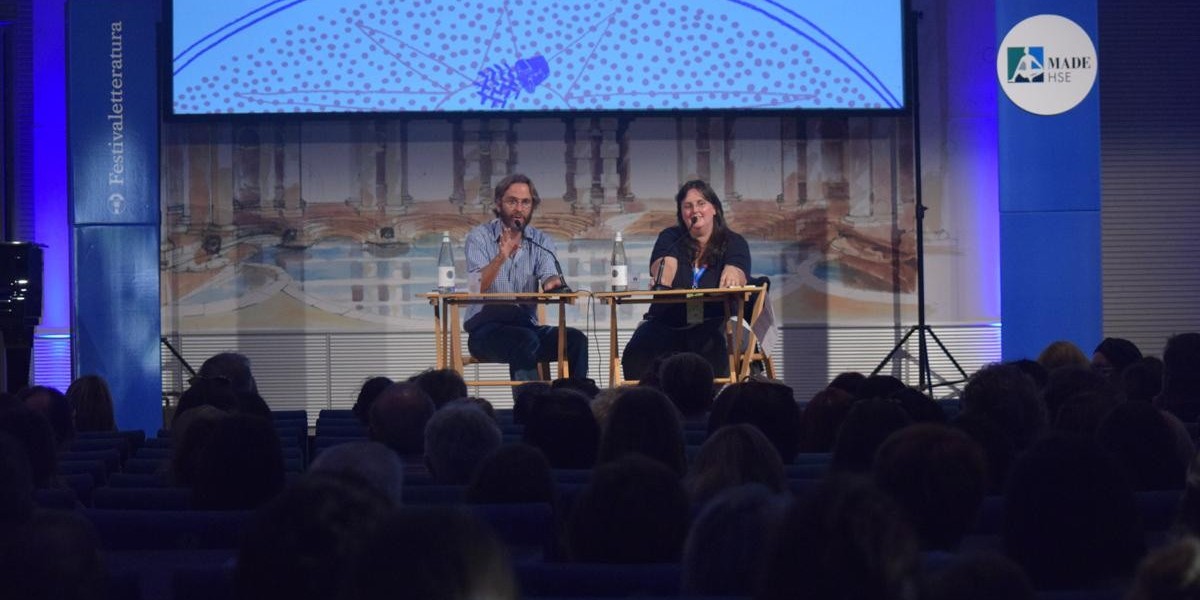
The pitfalls and perks of translating the classics
Impermanence, invisibility and humility. These are just three of the concepts around which the work of the translator revolves, who is seduced and intimidated by the text they are working on. Both Marco Rossari and Chiara Codecà know this well, having worked on (and also consciously and inevitably betrayed) the most varied works, from their initial experiments at university to important classics that they have translated in recent years. Their career paths, in fact, have been quite different leading to the former defining translation as a “dark art”, while the latter considers it rather “a practice without rules.” Rossari, a literature graduate and expert in American studies, had the fortune of getting an “inadvertent recommendation” from Fernanda Pivano, a leading figure in the industry as well as his personal idol. Codecà, a graduate in cultural heritage and expert in English literature, was pushed by her mother to study language for eight years. Yet on-stage they have a heated discussion on the theme, sharing ideas and recounting anecdotes with “the scientific method of jumping from topic to topic,” noted by Rossari.
The advantage that the translation has on the original text is that it has the voice of its own age, in whatever moment is it reproduced or republished: this, however, allows us to say that the original doesn’t ever age, while the translation does, given that they way of expressing oneself in a certain time period quickly ages, requiring a new edition. The original, by its nature, remains untouchable and unchanging. There are many examples of this: the version of Moby Dick translated by Cesare Pavese is full of genius insights but there are also numerous mistakes and imperfections. The same applies to Shakespeare’s plays translated by Eugenio Montale: the sensation that one has, as Rossari himself suggests, is not the right way of reading the Bard as the reader is faced with compositions by the Italian poet. The progressive chain of new editions of the same text can cause the translator to stumble into the dangerous realm of fastidiousness: their role should instead come with the ability to distinguish between the forms that have become consolidated and those which need costant updating. But this is a daunting task.
Another issue that the two authors tackle is the how much the translator should intervene in the text. According to Rossari, this move (exemplified by translator’s notes, which he criticised) implicates the ill-considered emergence of the translator’s ego, which should remain silent and humbly well hidden. Chiara Codecà thinks that this is impossible: when faced with a certain kind of text, it is inevitable that the translator makes themselves visible in the attempt to transmit the complex register of a foreign language through the medium of their own, which, when it does not offer new ideas, at least allows for different approaches. In this sense, the two agree that the great classics are easier to translate: remaining within the style serves as a stimulus for a successful job. More mediocre works (which, in any case, are an excellent training ground) discourage the translator, who immediately notices the banality. The author therefore asks (herself): to what extent can a translation improve the original? These are questions that can’t have a direct answer. Yet both of them recognise that the craft of translation has considerably improved over the decades.
Rossari spoke about his experience with Dickens’ Pickwick Papers. He called it a “cohabitation” rather than a translation. He also pointed out that the translator’s mind is always alert and sensitive to every book and film title, advertisement, slogan, restaurant menu and tourist guide. Nothing escapes the attention of someone who can’t allow themselves to be distracted. In this light, an audience member commented: “translating is like having a love affair.” Rossari goes further and declares: “translation is like prostitution.” You are entertained with the text for a short but intense period, and you demand money at the end. Among the laughs from the audience, the interesting event led by two members of a category which, despite the importance of the role, is always confined to the shadows of the original texts they work on.



